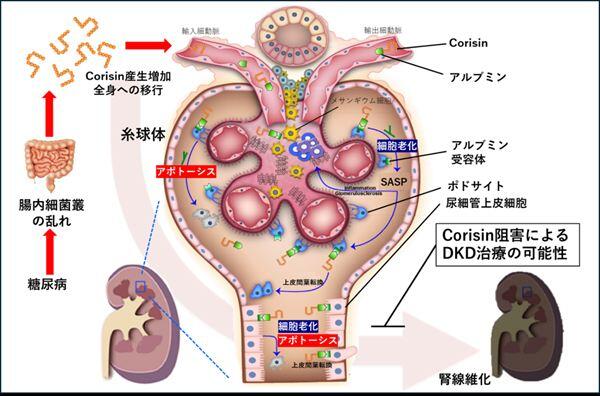Summary of our research
Chronic kidney disease (CKD) is one of the most serious complications of diabetes, often leading to kidney failure due to scarring (fibrosis). Alarmingly, there are still no effective treatments to halt this destructive process.
Now, our groundbreaking research has uncovered a surprising villain: corisin, a tiny molecule made by certain gut bacteria. We found that people with diabetic kidney disease have significantly higher levels of corisin -- and the worse their kidney function, the more corisin they had.
What does corisin do? It wreaks havoc on kidney cells, triggering inflammation, premature aging, and cell death, all of which accelerate scarring. Even more remarkably, it travels through the bloodstream by binding to a common protein, albumin, helping it infiltrate the kidneys.
But there's hope. We developed an antibody that blocks corisin, and in diabetic mice, it worked. Kidney damage was reduced, and kidney function improved.
This discovery reveals a powerful new link between the gut and kidneys, and offers a promising path toward new treatments for millions of people living with diabetic kidney disease.

Summary of research findings
Researcher information

Taro Yasuma
Assistant Professor, Department of Diabetes & Endocrinology/ Department of Immunology, Mie University Graduate School of Medicine
Specialized area:
Diabetes, Endocrinology, Immunology
